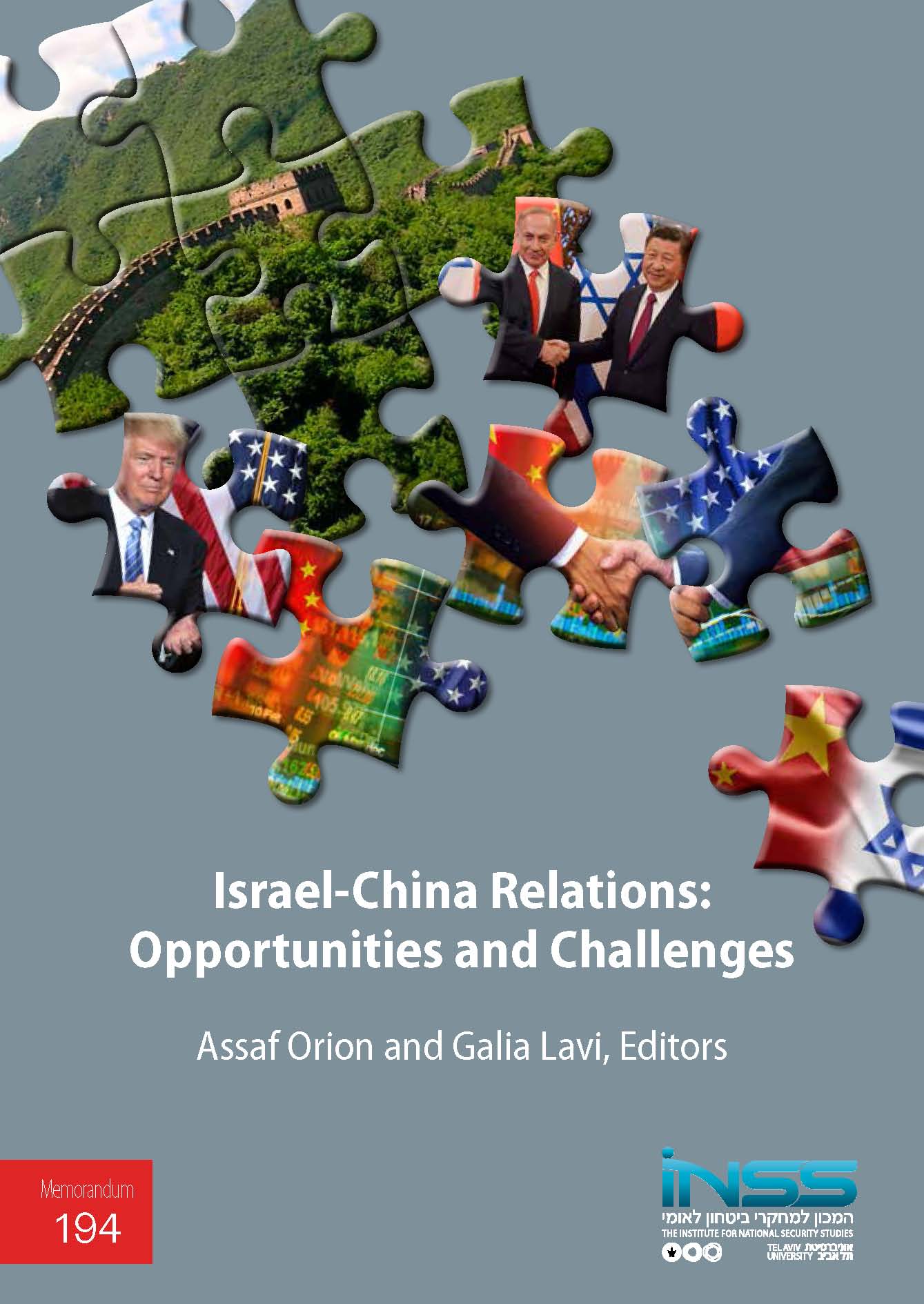Publications
Memorandum No. 194, INSS, August 2019

Over the past decade, Chinese state-owned enterprises (SOEs) and private companies have acquired Israeli companies and invested at a growing rate in various Israeli civilian industries such as transportation infrastructure, food, chemicals, mining resources, cellular technologies, cybersecurity, and medical technology. In Israel, companies are required to turn to the Israel Securities Authority and report any outside overtures to acquire their assets (or investments that would constitute control), starting from the negotiation stage.1 The current regulatory process in Israel focuses on essentially financial aspects, and assesses the acquiring company’s corporate structure and its degree of financial leverage. In many countries, the acquisition of local resources by foreign companies is subject to regulation. Indeed, unlike in Israel, different industrialized Western countries have special regulatory agencies that also assess security and political risks that could result from the acquisition of local companies by foreign bodies, and from their possible control over what are defined as strategic assets. These countries see China’s global purchasing campaign as a combined economic and political challenge.
Economically, China’s fast progress toward becoming a technology and innovation superpower threatens the competitive advantages of developed countries with knowledge-intensive economies such as the United States, Germany, South Korea, and Japan. In 2016, China for the first time ranked 25 in the World Innovation Index (while Israel ranked 21),2 and in 2017 it climbed to 22 (while Israel climbed to 17).3 Thus, China’s becoming an innovation superpower, combined with its enormous production capacity and its political aspirations in the international arena, is seen as a threat to the economic future of developed countries. Politically, various countries are concerned that if companies owned or connected to the Chinese government control assets defined as strategic (such as ports, electricity and communication infrastructure, agricultural land, and civilian technologies with military applications), this in turn could enable the Chinese government to leverage its economic control into political influence or use its acquisitions for military buildup. These concerns have led certain countries to create special regulatory agencies to address China’s increased penetration of their markets.
Israel faces similar risks in managing investments in its assets by foreign bodies in general and Chinese bodies in particular, whether they are owned by the Chinese government or by ostensibly private companies. In recent years, Israel has positioned itself as an international technological innovation giant, and Israel’s flourishing hi tech industry is one of the pillars of Israel’s economic growth, along with the defense industry, diamond processing, tourism, and metal and chemical processing. Israel is considered a knowledge intensive economy; the costs of labor in Israel are high, and it lacks the manpower necessary for maintaining efficient production lines over time that would complement its developed services industry. China, in contrast, has extensive and proven production capabilities, as well as a large, attractive, and growing domestic market. On many occasions, Chinese leaders have described Israel and China’s economies as complementary,4 and in their view China can use its extensive capital to invest in Israeli companies, to benefit from their technological knowledge and open production plants and research and development (R&D) centers in China. China’s dominant economic power, its unique political culture – characterized by close connections between party, government, and industry – and its national aspirations regarding technological development and innovation, along with its increasing investments in a variety of Israeli companies, are therefore an economic and political challenge for Israel. This article compares the mechanisms for regulating foreign investments in the United States (CFIUS), Germany (BMWi), Australia (FIRB), and Canada (ICA), and the existing regulatory regime in Israel. It analyzes the risks and challenges to Israel in light of increasing Chinese acquisitions, and proposes policy recommendations. For the purpose of this study, official documents and protocols of the relevant countries were examined along with secondary sources and media reports, and discussions were held with personnel at various Israeli governmental bodies.


